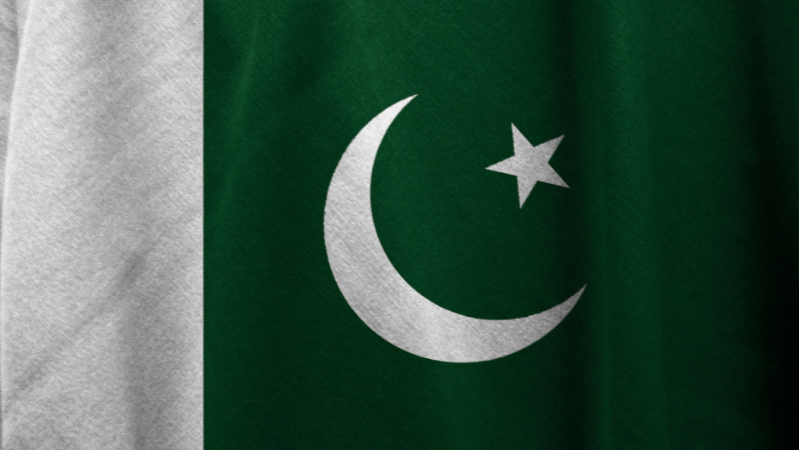
By Umer Karim, Doctoral Researcher in the Department of Political Science and International Studies, University of Birmingham
The election of Imran Khan as the Prime Minister of Pakistan in 2018 heralded some new trends in Pakistani politics. Imran Khan became the first person after former Premier Zulfiqar Bhutto to land into power through the sheer force of populism. Even more, he became the first premier in the modern political history of Pakistan to have the full backing of Pakistan’s military leadership. The close coordination between the government and the country’s security establishment was evident in both the domestic and foreign policy realms.
Khan’s government perfect alignment with the military was exhibited during the 2019 Balakot Crisis, the August 2019 Indian annexation of the Indian Administered Jammu and Kashmir States, and Pakistan’s stance on developments in Afghanistan. Within domestic politics attempts by opposition to outmanoeuvre the government repeatedly failed. The pinnacle of government politics came as the government’s supported candidate was elected as senate chairman, even when the motion didn’t receive a majority in the upper house of parliament. Even though there were dissentions within government ranks thanks to the rift between Imran Khan and his close aide Jahangir Tareen, they never translated into anything politically threatening and the government continued to pass crucial bills from both houses of the parliament.
The proximity between leaders of Pakistan’s premier security and intelligence institutions and Prime Minister Imran Khan was central to this governmental perseverance against a variety of political odds. Pakistan’s opposition leadership includes several seasoned and shrewd political players, but despite attempts they failed to challenge the government in a serious manner. However, this changed as the opposition submitted a no-confidence motion against Imran Khan, following which videos emerged of disgruntled government members denouncing the government. Moreover, rather loyal political allies of Khan’s government also started wavering in their support for the government.
The question remains: what led to this change?
It appears that the key driver of these changes in Pakistan’s political spectrum is the changing nature of civil-military relationship and particularly the personal relationship between Imran Khan and the country’s army chief General Qamar Javed Bajwa. Cracks started to emerge between the duo when the military attempted to transfer Khan’s trusted intelligence chief (also a military officer) and the primer minister officer refused to accept the move. This led to a short-term crisis between the two main power pillars in Pakistani politics eventually resulting in the transfer of country’s top spy. This episode gave birth to the critical flaw that has started to damage Khan’s government. The success of opposition in cracking a crib within government’s parliamentarians’ points to the new reality that government’s defence guard has left it. The Pakistani army chief recently stated that Imran Khan is calling all the shots – although this gives an image of an all-powerful premier, it can also be interpreted as Khan is making decisions on his own and that the military is not going to bat for him or his political rhetoric.
However, this situation doesn’t necessarily mean the political end of Imran Khan. On the contrary, this perhaps is the start of a political career solely driven by his very own political discourse: based on anti-western populism and demagoguery against corruption. Khan still has all civilian institutions under his control, including civilian law enforcement and intelligence, which are good enough to put a dent to the opposition. In addition to this, humungous political rallies across the breadth of country suggest Khan has managed to remobilize his support base.
In this political backdrop, while addressing a mammoth political gathering in the capital Islamabad, Khan alleged that foreign powers – through use of money and local politicians – are making attempts to topple his government like they did with former Prime Minister Zulfikar Ali Bhutto in 1977. This revelation cum accusation by Khan comprehensively challenges the rhetoric of Pakistan’s opposition movement and has converted the whole political drama into a national security threat.
This move by Khan will further complicate his already beleaguered relationship with the country’s military leadership that has advised Khan to soften up his rhetoric against the political opposition for the sake of political. Khan may still be able to reach a new arrangement with the military that will ensure continuity within the institutional realm but may also warrant Khan to sacrifice some figures who have over the years moved closer to him.
At the end of the day, even if Khan manages to rope in his party’s dissenters, the political balance may be settled by Khan’s government allies who will listen to their patrons; their moves will ultimately suggest if the military leadership has finally decided to put their foot down on Imran Khan. All and any of these outcomes would brew political instability and chaos. In short, the political night of our lives has just commenced on the stage of Pakistani political theatre.
- Find out more about Umer Karim
- Find out more about the POLSIS at the University of Birmingham
- Back to Social Sciences Birmingham
